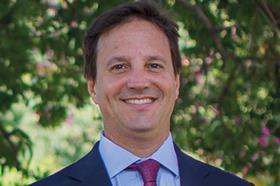Alberto Perez Cedillo speaks to Javier Canosa, partner at Argentine firm Canosa Abogadas, about the country’s private client legal practices


Are lawyers regulated?
Yes. However, there is no unified regulation throughout the national territory. The activity of lawyers is regulated in each of the 24 provinces of Argentina. In all these jurisdictions it is mandatory to be registered in the ‘union’ of lawyers or bar association of the relevant province.
Are lawyers officers of the court?
In principle, the lawyer is the ‘first judge’ of a potential case, deciding whether there is a case or not. Lawyers are not, as such, officers of the court.
Are there also barristers, solicitors and notary publics?
Yes. A lawyer exercises the defence of the client or provides legal advice.
A notary public is a legal professional who exercises a public function by state delegation. They cannot take a position in favour of their client as lawyers do, but remain neutral, for the security of legal relations, which makes their action public or of general interest.
Are there specialised probate courts?
Yes, there are special civil courts for probate matters.
Substantive national law
Is Argentina one country – one law, or there are regional differences?
Argentina has 24 provinces. Provinces are fully autonomous: they enact their own constitutions, freely organise their local governments, and own and manage their natural and financial resources. However, 95% of the provincial budgets are supported by the federal government with federal taxes. Substantive civil and commercial matters are dealt in the Civil and Commercial Code (CCC) that applies across the nation.
Succession
Is there liberty of testation or there are compulsory legacies?
There are forced heirship rules in Argentina. A person can make a will and dispose of their assets after their death, as long as they respect the legitimate portions of the successors. If there are descendants, the legitimate portion is two-thirds of the inheritance; if there are no descendants, the ascendants have a legitimate portion of half of the estate.
Succession pacts – are they allowed?
Section 1010 of the CCC states that “future inheritance cannot be subject to contracts”. However, in the following paragraph of the section, an exception of considerably wide scope is provided in these terms: “Agreements relating to productive exploitations or corporate participations of any kind, with a view of preserving the unity of business management or conflict prevention or resolution, may include provisions referring to future hereditary rights and establish compensation in favour of other heirs. These agreements are valid, whether or not the future deceased and his spouse are parties to, only when they do not affect the legitimate portion of inheritance, the rights of the spouse, or the rights of third parties.”
This means that the agreement on future hereditary rights are valid if the purpose of the agreement is to ensure the conservation and harmonic management of an already productive operation.
Wills and wills requirements for validity – how do they operate?
There are two types of wills: holographic wills and wills by notarial deed.
Holographic wills
The holographic will must be fully handwritten in the language it is granted, dated and signed by the testator. The signature must be after the provisions. The lack of any of these formalities invalidates the act, except that it contains statements or material elements that allow the date to be established in a certain way. The testator’s error on the date does not prejudice the validity of the act, but the will is not valid if the testator voluntarily sets a false date on it to violate a provision of public order. Additions written by someone other than the testator invalidate the will.
It is not essential to write the holographic will all at once or on the same date. The testator can consign their dispositions at different times, either by dating and signing them separately, or by putting the date and signature on all of them on the day the will is completed.
Wills by public deed
The will by public deed is granted by means of a public deed, before the authorised notary public and two skilled witnesses, whose names and addresses must be recorded in the deed. The testator can give the notary their provisions verbally or in writing. Once the will has been drafted, it is read and signed by the witnesses and the testator. Witnesses must attend from the beginning to the end of the act without interruption, which must be recorded by a notary public.
Trusts – are trust recognised?
Yes, domestic trusts and foreign trusts are recognised under Argentine law.
Are charities often beneficiaries?
Charitable associations can be beneficiaries of an inheritance or trusts. In the event that the deceased has forced heirs, they can only allocate the available portion, one third or one half.
Protection of adults
Lasting powers of attorney – preventive powers of attorney
Powers of attorney (PoA) are revoked automatically upon the death of the grantor.
However, section 1380 of the CCC provides that if the PoA can be valid as a disposition of the last will, then the PoA shall not be revoked upon the death of the grantor. In addition, the PoA may also subsist in the event of the death of the principal, if the individual with the PoA has authority to perform determined acts and on account of a legitimate interest which may be solely of the agent, or of a third party or of a person common to the agent and principal, or an agent and a third party, or a principal and third party.
In connection with preventive powers of attorney, first, it is noteworthy that a person may grant a PoA to be valid even after the person becomes incapacitated. The subsequent lack of capacity may not affect the PoA as such. In addition, sections 43 and 139 of the CCC relate the possibility of proposing the appointment of representatives and support in anticipation of one’s own incapacity or restriction of capacity.
Section 60 of the CCC deals with “advance medical directives” allowing the person to decide on provisions for daily life; choice and rejection of the person they may want as an eventual administrator, curator or caregiver; and designation of the person who decides on health issues, acceptance or rejection of medical treatments, place and conditions of hospitalisation.
International
Is there a rule as to the unity of law for succession?
Indeed, the CCC provides that (i) if the deceased individual is a resident of Argentina, the competent jurisdiction of the succession will be the jurisdiction applicable to the courts of the last domicile of the deceased, or (ii) in the case of a foreign resident with real estate in Argentina, for those assets, the courts of the place of location of the real estate.
The provisions of the CCC provide the unity of law for succession, but displaces the jurisdiction in favour of Argentine judges when there are properties (real estate) in Argentina. The definition of “real estate” is a qualification issue that is determined by the law of the place of situation (section 2663 of the CCC). In short, it is not a subject matter of exclusive jurisdiction, but concurrent, and the jurisdiction of the domicile and the estate is received with respect to real estate when it is located in Argentina.
Does the same law apply to movable and immovable property?
No. Section 2643 of the CCC provides that immovable property (real estate) located in Argentina will be subject to the courts competent to the place where the immovable property is located. Movable property is not subject to this rule.
Are foreign judgments and orders recognised?
Yes, they are recognised and enforceable in Argentina. If there is a treaty between Argentina and the country whose court has issued the enforceable judgment, then such treaty will be applicable.
If there is no treaty applicable, the following conditions apply:
- The ruling must be final and not subject to appeals and issues by a competent court in accordance with the rules of private international law of Argentina and consequence of the exercise of a personal claim or a claim over an asset that has been transferred to Argentina during the foreign proceedings or after the commencement of such proceedings
- The defendant must have been properly served and the right of defence duly served thereof
- That the judgment has the conditions to be considered as such and under the conditions set forth by the laws of Argentina
- That the judgment is not contradictory to another one issued by an Argentine court.
Are foreign wills recognised?
Section 2645 of the CCC explains that the will granted abroad is valid in the Republic according to the forms required by the law of the place of granting, by the law of the domicile, of the habitual residence, or of the nationality of the testator at the time the will was drawn or by the Argentine legal forms.
Procedural law
Is an executor or administrator required?
From the moment the person dies, the assets enter a state of indivision, which will end with the partition and division of the inheritance, these being awarded to the heirs. The administration of these assets until the time of division consists of carrying out all acts of conservation and disposition of the inherited assets owned by the deceased at the time of his death.
Fully capable individuals and legal entities authorised by law or by statute to administer the property of others, may hold the position of administrator of the inheritance.
The co-owners of the undivided estate can designate an administrator of the inheritance and provide the means of replacing it. In the absence of a majority, any of the parties may judicially request their appointment, which should preferably fall, if there are no reasons justifying another decision, on the surviving spouse and, in the absence, resignation or lack of suitability of the latter, on any of the heirs, unless there are special reasons that make it inconvenient, in which case you can designate a stranger.
Is there an equivalent to a grant of probate / letters of administration?
The CCC allows the administrator to be appointed by will. The testator can appoint one or several administrators and establish the mode of their replacement.
Winding up procedure – is there any difference if there is no will?
Yes, there are differences. When there is a will, the assets are liquidated according to the will of the deceased. When there is no will, the assets are liquidated in accordance with what is established by law according to the degree of kinship.
Formalities – is a notary public or a judge required?
To carry out a succession process in Argentina it is necessary to carry it out before the competent judge. A notary may not carry out the succession proceedings.





